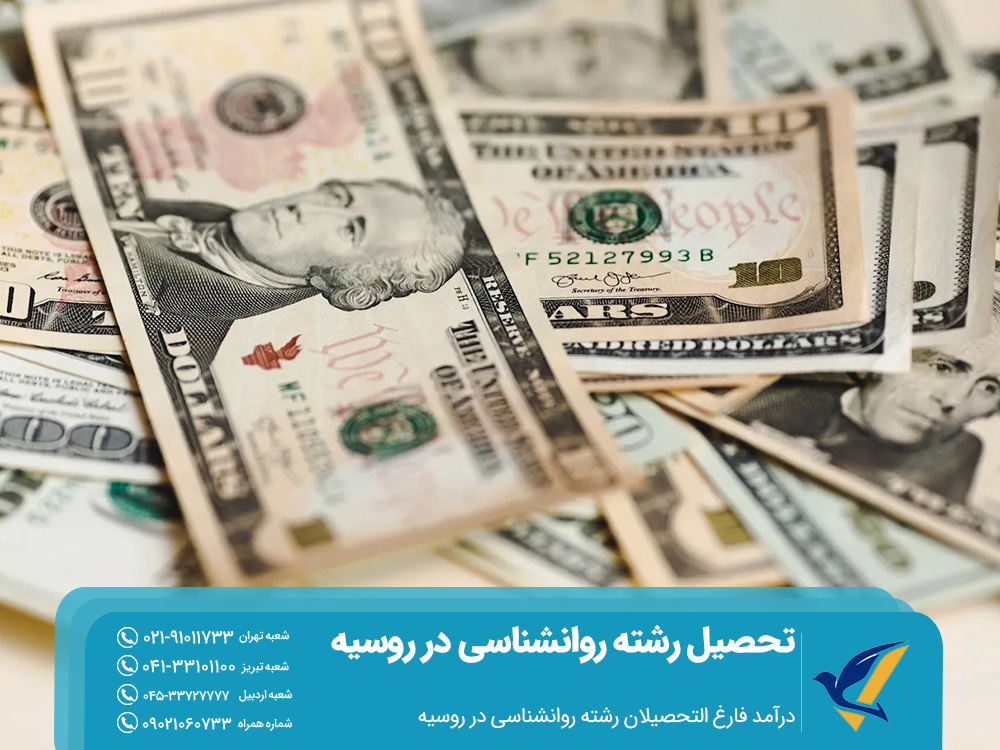For students aiming to gain international-level expertise, studying psychology in Russia has traditionally been an attractive option due to the long-standing history of its universities and its structured educational system. However, given recent economic changes and educational advancements in Asia, many prospective students are now exploring alternative options.
One of the primary concerns for these students is understanding the costs associated with studying psychology in Russia. To learn more about the best Russian universities for psychology, stay with Elm Vira until the end of this article.
Studying Psychology in Russia in 2025
Studying psychology in Russia in 2025 offers an excellent opportunity for international students seeking a scientifically rigorous and practical education in a modern and affordable environment. Russian universities provide diverse programs at the bachelor’s, master’s, and doctoral levels, enabling students to gain knowledge in psychological theories, applied research, and counseling skills.
Moreover, access to experienced faculty, well-equipped laboratories, and research centers creates a dynamic and professional environment for academic growth. The cost of studying psychology in Russia, along with living expenses, is generally lower than in many European and American countries. With the availability of scholarships and financial support, studying psychology in Russia becomes an especially attractive option for Iranian students.

Why Studying Psychology in Russia Is a Good Choice
As mentioned earlier, pursuing a degree in psychology in Russia in 2025 has become an attractive option for international students. Russian universities offer diverse programs at the bachelor’s, master’s, and doctoral levels, providing an excellent opportunity to gain specialized knowledge in psychology.
Moreover, the cost of studying psychology in Russia is more affordable compared to many European and American countries, and various scholarships are available for international students. Overall, studying psychology in Russia is appealing to international students for several reasons, including:
-
High-Quality Education: Russian universities, especially in psychology, offer programs aligned with international standards, and their degrees are recognized in many countries.
-
Affordable Costs: Tuition fees for psychology in Russia typically range from $2,500 to $7,000 per year, which, considering the quality of education, represents significant economic value.
-
Research and Internship Opportunities: Many universities have well-equipped psychology labs and research facilities, allowing students to engage in scientific projects and practical internships.
-
Multicultural Environment: The presence of international students from different countries creates a dynamic and diverse living experience.
Top Psychology Universities in Russia
Several Russian universities offer strong psychology programs, some of which are particularly recognized for their academic reputation and educational facilities. The table below highlights a selection of these universities:
| University Name |
Location |
Global Ranking (2025) |
Degree Levels |
Advantages |
| Lomonosov Moscow State University |
Moscow |
110 |
Bachelor’s, Master’s, PhD |
Russia’s most prestigious university with advanced research facilities |
| Saint Petersburg State University |
Saint Petersburg |
150 |
Bachelor’s, Master’s, PhD |
Specialized and international psychology programs |
| Higher School of Economics (HSE) |
Moscow |
170 |
Bachelor’s, Master’s |
Focus on applied psychology and behavioral science research |
| Moscow Psychological State University |
Moscow |
200 |
Bachelor’s, Master’s |
Specialized training in clinical psychology and counseling |
| Kazan Federal University |
Kazan |
230 |
Bachelor’s, Master’s |
Research opportunities in child psychology and education |
These universities offer programs in both Russian and English, making them accessible to international students and providing a solid foundation for academic and professional growth in psychology.

Popular Psychology Specializations in Russia
Overall, Russia offers an excellent environment for studying psychology, with experienced faculty, advanced laboratories, and well-equipped research centers. Studying psychology in Russia also provides an international and multicultural experience, which plays an important role in shaping students’ future careers.
Psychology programs in Russia are diverse, allowing students to choose a specialization that aligns with their interests. The most popular psychology specializations in Russia include:
-
Clinical Psychology: Focus on diagnosing and treating mental and behavioral disorders.
-
Child and Adolescent Psychology: Study of the mental and emotional development of children and adolescents.
-
Industrial and Organizational Psychology: Application of psychology in workplaces and organizations to improve employee performance.
-
Educational Psychology: Enhancing learning processes and teaching methods based on psychological principles.
-
Social Psychology: Study of group behaviors, social interactions, and cultural differences.
Steps to Apply for Psychology Programs in Russia
International students seeking to study psychology in Russia have access to high-quality education, advanced research facilities, and a culturally diverse living experience. Psychology programs in Russia are attractive to Iranian and other international students due to experienced faculty, comprehensive curricula, and international collaborations.
Choosing this educational path requires careful planning, understanding the application process, and preparing complete documentation to ensure a smooth university admission. Additionally, students can benefit from internships, research projects, and networking opportunities with professionals in the psychology field, which are significant advantages for their future careers.
The step-by-step process for applying to psychology programs in Russia is as follows:
1. Selecting the University and Program
The first step is to research Russian universities offering psychology programs. Universities should be compared based on academic ranking, quality of education, language of instruction, research facilities, and tuition fees to choose the most suitable option.

2. Preparing Academic Documents
Previous academic records (high school diploma or bachelor’s degree) must be officially translated, and transcripts should also be provided. These documents need to be valid and verifiable so that the university can properly assess your academic background.
3. Preparing Personal and Identification Documents
This includes a valid passport, passport-sized photos, medical certificate, and completed application forms. These documents are essential for the visa process and official enrollment.
4. Preparing Supplementary Documents
A Statement of Purpose (SOP) and Recommendation Letters from professors or previous employers should be prepared. These documents play a significant role in international student admissions and directly impact the outcome of the application.
5. Online Application and Document Submission
Most Russian universities offer online application systems. Supplementary documents and application forms are submitted through the university portal. Some universities may charge a fee for processing the documents.
6. Interview or Entrance Exam (If Required)
Some universities, especially for psychology programs, may conduct an online interview or entrance exam to assess applicants’ academic and psychological suitability.
7. Receiving the Admission Letter
After reviewing the documents and the results of interviews or exams, the university issues an Admission Letter. This letter is essential for subsequent steps, including applying for a student visa.
8. Applying for a Student Visa
With the admission letter, identification documents, and other required paperwork, students can apply for a Russian student visa. The type of visa may vary depending on the duration of the study program.
9. Preparing for Travel and On-Campus Enrollment
Once the visa is granted, students can plan their travel to Russia and complete on-campus enrollment for the psychology program. This step includes introduction to dormitories, final registration in the program, and familiarization with the university environment.

Admission Requirements for Studying Psychology in Russia
Generally, admission requirements for psychology programs in Russian universities vary depending on the degree level. Typically, applicants seeking to study psychology in Russia are required to submit the following documents:
-
Valid academic credentials (high school diploma for undergraduate programs, bachelor’s degree for master’s programs)
-
Official transcripts translated into English or Russian
-
English language proficiency certificate (IELTS/TOEFL) for programs taught in English
-
Statement of Purpose (SOP) and Recommendation Letters from professors
-
Curriculum Vitae (CV) detailing academic and work experience
-
Completed online application form and payment of the application fee
It is noteworthy that some universities may require an entrance exam or specialized interview, especially for clinical or specialized psychology programs.
Tuition Fees for Psychology in Russia
As you may know, tuition fees for psychology programs in Russia depend on the university and the level of study. On average, the fees are as follows:
-
Bachelor’s degree: $2,500 – $5,000 per year
-
Master’s degree: $3,000 – $6,000 per year
-
Doctorate (PhD): $4,000 – $7,000 per year
In addition to tuition, living expenses should be considered, which vary between $300 and $700 per month depending on the city and lifestyle. Major cities like Moscow and Saint Petersburg typically have higher living costs.
For comparison, tuition fees for psychology in China are generally higher than in Russia, making Russia an attractive and cost-effective destination for international students.
Scholarships and Financial Aid for Psychology Studies in Russia
It is important to note that Russia offers a variety of financial support options for international students, which can cover a significant portion of tuition and living expenses. These supports reduce financial pressure and allow students to focus more on studies and research. International students pursuing psychology in Russia can benefit from the following scholarships and financial aids:
-
Russian Government Scholarship: Full tuition coverage and partial living expenses for outstanding students
-
University Scholarships: Some universities offer dedicated scholarships to students with strong academic records
-
Research and Internship Grants: Financial support for students involved in research projects or practical internships
Utilizing these scholarships can significantly lower the overall cost of studying psychology in Russia, making the academic experience more affordable and accessible.

Career Prospects for Psychology Graduates
Psychology graduates from Russian universities generally enjoy wide-ranging career opportunities both within Russia and internationally. Some common career paths for graduates include:
-
Clinics and Healthcare Centers: Clinical psychologists can work in hospitals, counseling centers, and mental health clinics.
-
Schools and Educational Institutions: Educational psychologists help improve students’ learning processes and academic outcomes.
-
Corporations and Organizations: Industrial and organizational psychologists are employed to enhance productivity, employee performance, and human resource management.
-
Research and Academia: Graduates can pursue PhD programs or engage in research and teaching at universities and scientific institutions.
It is important to note that salaries vary depending on specialization and workplace. Clinical and industrial psychologists generally earn higher incomes, and international experience can provide a significant competitive advantage.
Benefits of Studying Psychology in Russia for Iranian Students
Studying psychology in Russia offers Iranian students a valuable opportunity for academic learning and practical experience in a multicultural environment. Renowned Russian universities with advanced facilities and experienced faculty provide an ideal setting for both academic and professional growth. Additionally, tuition and living costs in Russia are generally lower than in many European and American countries, facilitating access to global career opportunities and higher studies. Key benefits for Iranian students include:
High-quality theoretical and practical training
Interaction with international students, enhancing language and interpersonal skills
Affordable tuition and living expenses
Degrees from accredited Russian universities recognized in Iran and internationally
Opportunities to participate in internships and research projects
Building a professional network for career entry in psychology domestically and abroad
Key Considerations for Iranian Students
For Iranian students planning to study psychology in Russia, familiarizing themselves with the academic environment, university culture, and research opportunities is crucial for success. International exposure and interaction with faculty and students from around the world enhance academic development and social skills, laying the groundwork for future careers. Iranian students should pay attention to the following:
Verify that the university is recognized by Iran’s Ministry of Science before making a choice
Prepare and officially translate academic documents
Understand Russian student visa requirements (Type M visa)
Plan for health insurance and living expenses in Russia
Consult with reputable migration agencies and academic advisors
Overall, studying psychology in Russia in 2025 represents an excellent opportunity for international students seeking quality education, affordable costs, and valuable global experience. With reputable universities, diverse scholarships, and cost-effective living, Russia is an attractive destination for Iranian students.

Income of Psychology Graduates in Russia
The income of psychology graduates in Russia depends on several factors, including specialization, level of education, workplace, and work experience. Graduates in clinical, industrial, educational, or counseling psychology can work in hospitals, counseling centers, schools, organizations, and private companies. On average, entry-level psychologists in Russia earn around $800 to $1,500 per month, while experienced psychologists and specialists in clinical or organizational fields can earn $2,000 to $3,500 or more per month.
Additionally, graduates who join international companies or global research projects typically receive higher salaries and benefits. International study experience and proficiency in English and Russian also increase the chances of securing better job opportunities and higher income.
Conclusion
Despite the well-known advantages of studying psychology in Russia, selecting the right destination requires a comprehensive evaluation. For ambitious students, carefully comparing psychology tuition fees in Russia with other countries and assessing the academic opportunities available at the best Russian universities for psychology is key to making an informed decision and investing wisely in a professional future in this field.
With careful planning, thorough university research, and the use of reliable resources, you can shape your educational journey in psychology in the most effective way and gain a valuable experience at the crossroads of Europe and Asia. For more detailed guidance, you can connect with our experts at Elm Vira Immigration Institute through a free consultation request.
میانگین امتیازات 5 از 5
Vote count: 1 Vote